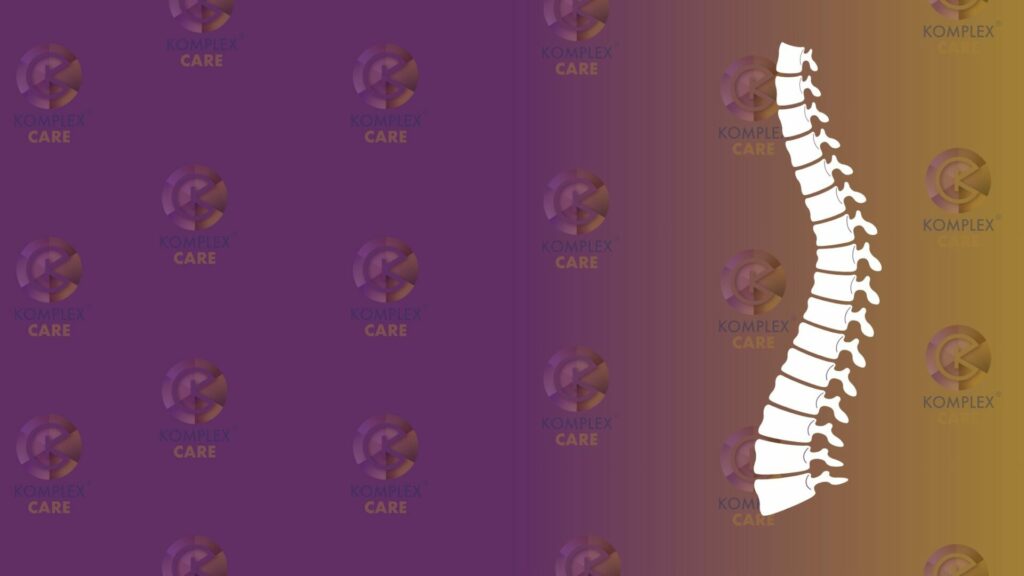
Sustaining a spinal cord injury means an individual is likely to need some element of care. The extent depends on where the injury site is, as this defines the impact and the symptoms experienced.
At Komplex Care, we look after a variety of clients with spinal cord injuries. Some are able to move around with mobility aids, while some are paralysed as a result of their condition.
In this blog, we take a look at the causes and effects of spinal injuries, and the level of care which may be needed:
It’s estimated that more than 10,000 people in the UK live with a spinal injury.
Injuries are either classed as either ‘traumatic’ or ‘non-traumatic’ depending on whether they have been acquired through an incident like a fall, car accident or sports, or whether they are the result of a condition such as cancer, osteoporosis or multiple sclerosis.
What causes a spinal injury?
If the spinal cord is injured, this disrupts communication between the brain and the body – interrupting sensation and movement. This results in either a temporary or permanent loss of function, paralysis and loss of sensation.
Sensory, motor and reflex messages may not be able to get past the injury site. If any movement and sensation occurs below the level of injury, then it is referred to as incomplete. If there is none at all, then is it complete.
How severely do spinal injuries affect the person?
The severity of the symptoms depends on the injury site. Generally, the higher up the spine, the more extensive the impact will be. The ASIA/ISCoS Exam and Grade is used to define the extent and severity of the injury. This will impact the rehabilitation and recovery needs of the individual.
Injuries in the High Cervical Nerves (C1-C4) generally result in paralysis to the arms, hands, trunk and legs (known as tetraplegia or quadriplegia). The person may be unable to breathe or cough unassisted and their speech may be impaired or reduced.
The lowest part of the spinal cord which can be affected by injury is the Sacral Nerves (S1-S5). Individuals impacted by this type of injury may have some loss of function in their hips and legs, but will most likely be able to walk. Control of their bowel or bladder may also be affected.
Do people with spinal injuries need carers?
The level of support an individual needs to go about their day-to-day life will depend entirely on the level of their injury, as this will impact their mobility and independence. For those with incomplete injuries to the lower part of the spine, they may be able to cope with assistance from loved ones. But for those with a higher complete injury, there may be a need for external support from a care team.
At Komplex Care, we provide everything from drop-in calls to live-in care for our clients with spinal cord injuries. Packages are tailored around their individual needs to ensure we – as our client Ben puts it – ‘enable them to live their life as they would if they didn’t have the injury’. We also work with other health professionals to assist in the transition from inpatient rehabilitation, to continuing recovery at home.
If you’d like further information about our complex care packages, please do get in touch. There are also some fantastic organisations such as Back Up and the Spinal Injury Association. They provide resources and support to those with spinal cord injuries and their families.





